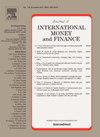从禁止到平衡:农业气候政策如何重塑农村资产配置?
IF 2.8
2区 经济学
Q2 BUSINESS, FINANCE
引用次数: 0
摘要
促进可持续发展的气候风险环境监管是一个需要进一步关注的重要研究课题。随着农业气候环境保护意识的增强,中国开始实施秸秆禁烧政策。为深入了解秸秆禁烧政策对农村家庭资产配置行为的影响和效果,本研究利用 2010 年至 2018 年的中国家庭面板研究(CFPS),采用差分估计(DID)策略来识别因果效应。据此,我们得出了几个实证结论。首先,秸秆禁烧政策对农村家庭的资产配置行为有显著影响,导致风险资产和非风险资产的增加。具体而言,秸秆焚烧冲击发生后,农户对风险投资的偏好强烈存在。其次,我们发现农户数量和农业生产成本(包括与灌溉、种子和土地使用相关的费用)显著减少。相反,我们观察到土地租赁和农民机械租赁活动大幅增加。这些效应改变了收入模式,从而影响了家庭资产配置行为。第三,秸秆禁烧政策对家庭支出,特别是总支出和住房支出产生了显著的下降影响,而福利支出则因预防动机而出现了正增长。最后,受秸秆禁烧政策影响的农村家庭会显著增加短期储蓄和非融资性资产的配置,以及固定资产融资和金融投资的配置。本文章由计算机程序翻译,如有差异,请以英文原文为准。
From ban to balance: How agricultural climate policies reshape rural asset allocation?
Environmental regulation on climate risk for promoting sustainable development is an important research topic that requires further attention. In response to the increasing awareness of agricultural climate and environmental protection, the implementation of the straw burning ban policy has been adopted in China. To gain a deeper understanding of the implications and effectiveness of the straw burning ban policy on rural households assets allocation behaviors, and this study utilizes China Family Panel Studies (CFPS) during 2010 to 2018 and employs the Difference-in-Differences (DID) estimation strategy to identify the causal effect. Accordingly, we draw several empirical findings. First, the straw burning ban policy has a significant impact on the assets allocation behaviors of rural households, leading to an increase in both risk and non-risk assets. Specifically, a preference for risky investments strongly exist following the occurrence of the straw burning shock. Second, we reveal significant reductions in the number of farmers and farming production costs, including expenses related to irrigation, seeds, and land usage. Conversely, we observe a significant increase in land renting and farmer machinery leasing activities. These effects are found to change the income patterns and thus affect household assets allocation behaviors. Third, the straw burning ban policy has a significant decline impact on household expenditures, specifically in total and housing expenditures, while welfare expenditure shows a positive increase as the preventive motivation. Finally, rural households affected by straw burning ban policy are significantly induced to increase allocation in short-term saving and non-financing assets, as well as in financing fixed-assets and financial investments.
求助全文
通过发布文献求助,成功后即可免费获取论文全文。
去求助
来源期刊

Journal of International Money and Finance
BUSINESS, FINANCE-
CiteScore
4.20
自引率
4.00%
发文量
141
期刊介绍:
Since its launch in 1982, Journal of International Money and Finance has built up a solid reputation as a high quality scholarly journal devoted to theoretical and empirical research in the fields of international monetary economics, international finance, and the rapidly developing overlap area between the two. Researchers in these areas, and financial market professionals too, pay attention to the articles that the journal publishes. Authors published in the journal are in the forefront of scholarly research on exchange rate behaviour, foreign exchange options, international capital markets, international monetary and fiscal policy, international transmission and related questions.
 求助内容:
求助内容: 应助结果提醒方式:
应助结果提醒方式:


